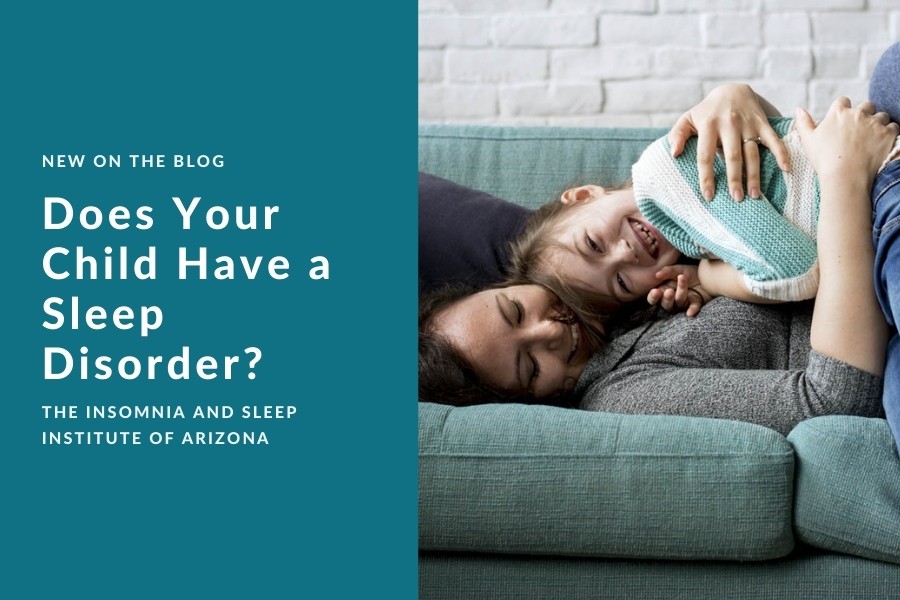It is not only adults who struggle with sleep disorders, which is why The Insomnia and Sleep Institute of Arizona treats adults and pediatric patients as young as two. In fact, sleep disorders in children and teens are quite common. Just like with adults, when a child has poor sleep (due to a sleep disorder) a number of problems can occur including issues with academics, behavior, social relationships, and even developmental issues. Sleep disorders often lead to co-morbidities such as weight abnormalities in children. In other words, no matter a person’s age, getting the right diagnosis when it comes to a sleep disorder followed by the proper testing and treatment is paramount.
The Insomnia and Sleep Institute has been voted “Top Doc” in the Phoenix area, as voted by fellow sleep experts, for the last six consecutive years. We are an outcome-driven clinic, so your consultation is always with a sleep specialist who can diagnose sleep disorders. Our sleep center is also where you’ll find unprecedented staffing levels with three sleep specialists and a number of staff members concentrating in sleep disorders and treatments. As the Face of Sleep Medicine in Phoenix, we are here to help you (and your child) get the sleep you need and deserve.
Pediatric Sleep Disorders
Many children struggle to fall or stay asleep from time to time, but in many cases this might actually be due to a sleep disorder. Children can also have similar physiological sleep disorders as adults, such as obstructive sleep apnea (OSA). Younger patients are typically more inclined to disruptive behaviors like parasomnia events, sleepwalking, restless legs syndrome, and cataplexy. Although a child might be diagnosed with the same sleep disorder as an adult, the actual presentation, etiology, and associated symptoms can be quite different in children.
There are also developmental facets of being a child that can play a role in diagnosing and treating/managing pediatric sleep disorders. If you suspect that your child has a sleep disorder, it’s important to get help from a sleep center right away. The first step in treating a pediatric sleep disorder is to establish expectations about what “normal” pediatric sleep entails. Depending on the type of sleep disorder(s) your child has, there might be a number of approaches to take once a diagnosis and any testing has occurred. For example, behavioral modification plans and cognitive behavioral for insomnia (CBT-I) therapy might be the key to helping your child get quality sleep.
Getting Your Child the Sleep They Need
There are many approaches that may be taken to help your child with their sleep disorder. A few common approaches include scheduled awakenings and using positive reinforcement. At other times, a supplement or medication may be necessary. Working with other medical experts might be necessary, such as when an evaluation with a specialist such as an ENT surgeon or orthodontist is warranted. Children with OSA often benefit greatly from CPAP therapy, which is the standard OSA treatment in both adults and children.
If you think your child is struggling with sleep, the journey starts with a consultation with a sleep specialist to secure a diagnosis. This will include taking a comprehensive history, often followed by a physical exam to ensure all symptoms are identified. You can expect to get asked about details at home, school, and the actual sleep environment. School performance, sleep history, and any known stressors will also be noted. All of these factors, and many more, are paramount in order to gauge what is happening around sleep disturbances. The parents’ sleep will also be considered. Sometimes a child may need to stay overnight to undergo a sleep study, at times blood tests may be ordered, and asking to keep a sleep diary is commonly needed. Ultimately, the process of diagnosing a sleep disorder in any person, adult or child, is a customized approach.
Achieving Quality Sleep in Kids
There are many types of sleep disorders. Some of the most common in children include arousal disorders, OSA, restless legs syndrome, insomnia, snoring, central sleep apnea (CSA), and nighttime sleep behaviors or parasomnias. Good quality, uninterrupted sleep is a must for everyone, but particularly children as they are still growing and developing. The gift of great sleep is one of the best things you can give your kids, but many times that will require support from a sleep specialist.
To schedule your consultation at The Insomnia and Sleep Institute, call the office today or complete the online form. Virtual consultations are still available for your convenience and safety.





